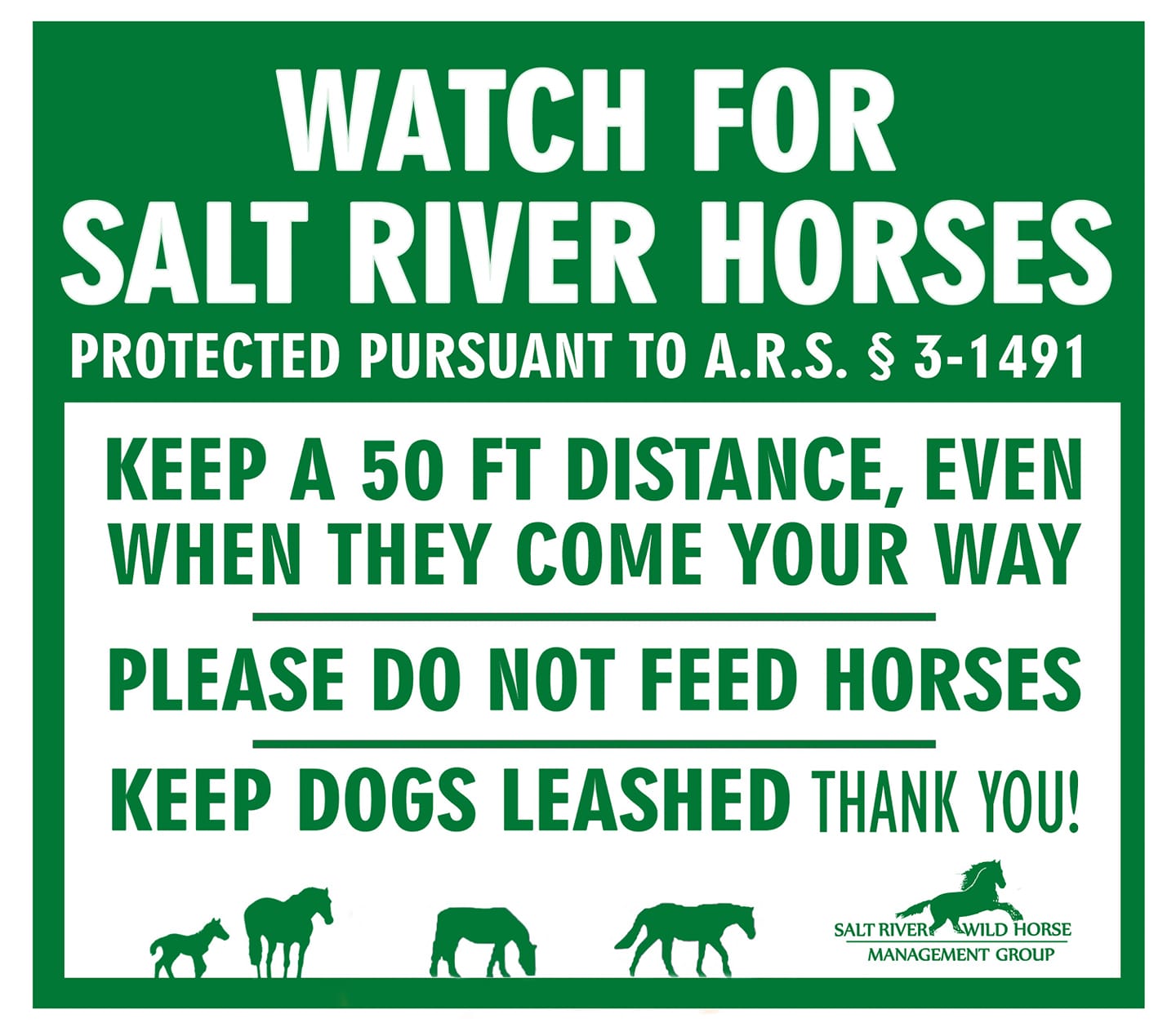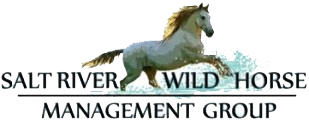
SRWHMG Sets Precedent Humanely Managing Wild Horses

For immediate release:
Salt River Wild Horse Management Group sets precedent humanely managing wild horses, but needs help from the public.
Tonto National Forest, Mesa, Ariz. (March 7th, 2018) —Multitudes of people visit the lower Salt River in the Tonto National Forest, to see the Salt River wild horses. These beautiful wild animals are managed by the Salt River Wild Horse Management Group (SRWHMG) under the Arizona Department of Agriculture (AZDA). The Non-Profit group is setting precedent in treating these animals humanely, while also keeping their numbers in check with a birth control program. They have been fighting to keep these wild horses wild, but are now asking for assistance from the public to help the program succeed.
“Our organization and the public of Arizona fought hard to keep them in their natural habitat. It was a big victory when the Salt River Horse Act was signed into law by Governor Ducey”, said Simone Netherlands, President of the Salt River Wild Horse Management Group. ” “Elsewhere in the country, thousands of wild horses are routinely rounded up and removed by the Federal Government, even while they are protected under the Wild Free Roaming Horse and Burro Act. This is very inhumane and very costly for the taxpayer; we know there are better ways and we are proving it”, Netherlands states confidently.
It has not even been a year since the State and the Non-Profit started working together, and a lot has been accomplished already. Over 130 mares have been darted with the birth control vaccine PZP. Trained and certified volunteers remotely dart the mares with the vaccine, which is 95 percent effective in preventing pregnancy, it does not harm the horses or unborn foals.
The cooperation between the Government and a non-profit group for the protection of wild horses is quite unique. Jacquelyn Hughes, who is the Salt River Horse Liaison for the AZ Department of Agriculture is excited about the progress, “It is the Agriculture Department’s goal to support positive solutions through this public/private partnership with the SRWHMG, that other areas with wild horses could use as a model”, she stated.
But the management group says it is facing some challenges in managing the public’s interaction with the horses, especially now that it is foaling season.
The wild horses are incredibly popular, which sometimes causes public safety and animal welfare concerns. For example, people attempting to photograph the horses often get too close, perhaps forgetting that these are wild, untamed animals. Netherlands also said that, motorists attempting to get a glimpse of the horses have been pulling over on the shoulders of the road, causing traffic safety concerns.
Even helicopters, airplanes, drones, bikers and horseback riders have been observed getting too close, causing the horses to run, which is dangerous to both the public and the horses.
As a result, the SRWHMG is urgently calling on the public to adhere to safe viewing guidelines and to recognize that getting too close can interfere with the horses’ natural behaviors, even sometimes causing mares to abandon their foals.
Harassment of the Salt River wild horses is illegal pursuant to the Salt River Horse Act, ARS 3-1491. In order to make the public more aware about this, SRWHMG has designed information signs for the recreation areas. The signs will post the State Statute and asks the public to keep a minimum of 50ft distance from the horses at all times, even when they come your way. The group does not get paid by the State and is funded by the public only, so they need donations to install these signs.
SRWHMG will hold media briefings tomorrow and do some media pieces. There IS a safe way to view wild horses and there is also a way to tell that you are too close to a wild horse and when you are disturbing their natural behavior. If you are with the press, please contact us for meeting info.
Background on the program.
The Arizona Department of Agriculture entered into a contract with the Salt River Wild Horse Management group for the humane management of the herd.
It includes SRWHMG keeping the population humanely in check through use of the PZP fertility control vaccine.
SRWHMG keeping records for all of the horses and monitoring their health.
SRWHMG improving and cleaning up their habitat along the lower Salt River.
SRWHMG rescues injured and orphaned wild horses when needed.
SRWHMG is prepared for emergency measures, such as feeding wild horses during the drought.
“Wild horses are a historic treasure and are loved and cherished by the public. They are an economic tourism resource for the areas where they still exist. We sincerely hope that humane wild horse management will become the norm all over the country, as an alternative to removing entire wild horse herds”, Netherlands concluded.
